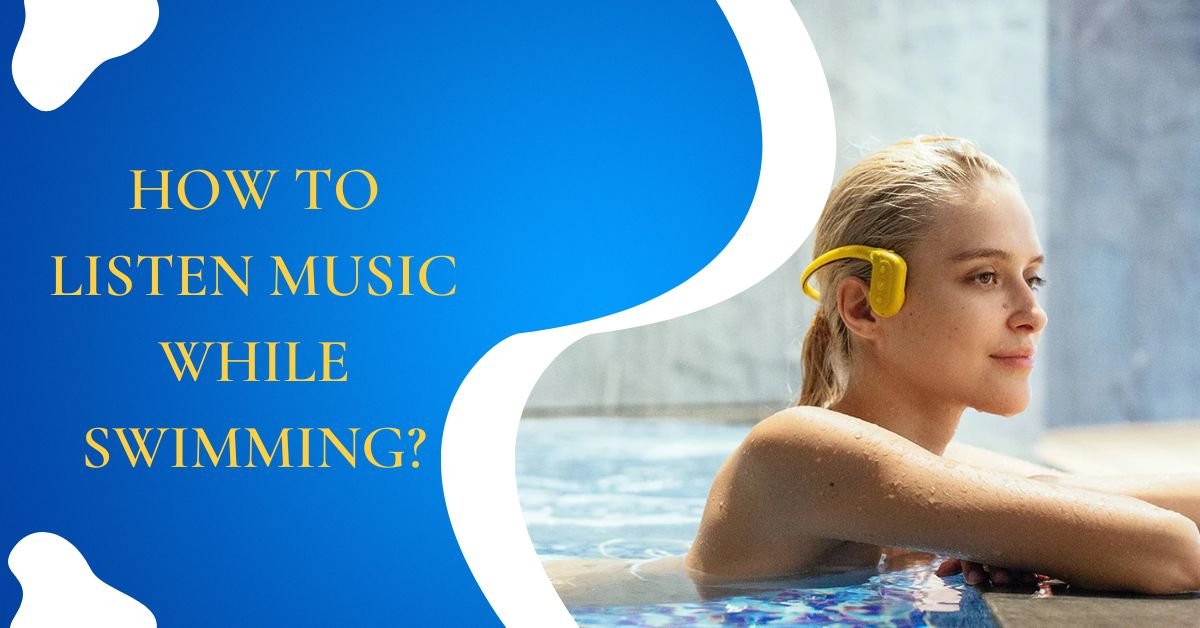Swimming is one of the most popular water activities worldwide. Whether you’re a professional swimmer, athlete, or simply love to swim, listening to music can make your experience even better. However, listening to music while swimming can be quite challenging, as regular headphones cannot withstand water immersion. In this article, we will discuss how to listen to music while swimming without compromising the quality of your experience.
Listening to music while swimming is a great way to make your experience more enjoyable. It can help you stay focused, improve your technique, and increase your overall motivation. However, finding the right headphones that can withstand water immersion can be quite challenging. In this article, we will discuss the different types of waterproof headphones available, how to choose the best ones, and how to use them properly.
Understanding Waterproof Technology
Waterproof technology has significantly advanced in recent years. Waterproof headphones are specifically designed to withstand water immersion and protect your device from damage. Waterproof headphones come with an IP (Ingress Protection) rating, which indicates their level of protection against water and dust. The higher the IP rating, the better the protection against water and dust.
Types of Waterproof Headphones
There are various types of waterproof headphones available on the market, such as:
- In-ear headphones
- Bone conduction headphones
- Swimbuds
- Waterproof MP3 players
Each type of waterproof headphone comes with its own set of advantages and disadvantages. In-ear headphones provide excellent sound quality but may cause discomfort after extended use. Bone conduction headphones are comfortable but may not provide the same sound quality as in-ear headphones. Swimbuds are specifically designed for swimming and come in different earbud sizes to fit your ear comfortably. Waterproof MP3 players are perfect for those who want to listen to music while swimming without using their smartphones.
How to Choose the Best Waterproof Headphones?
When choosing the best waterproof headphones for swimming, consider the following factors:
- IP Rating: Choose headphones with a higher IP rating for better protection against water and dust.
- Comfort: Look for headphones that come with different earbud sizes to fit your ear comfortably.
- Sound Quality: Choose headphones that provide good sound quality underwater.
- Connectivity: Choose headphones that are easy to connect to your device.
Tips to Make Waterproof Headphones Last Longer
To make your waterproof headphones last longer, consider the following tips:
- Rinse your headphones with fresh water after each use.
- Dry your headphones properly before storing them.
- Do not expose your headphones to extreme temperatures.
- Avoid using your headphones in saltwater.
How to Connect Waterproof Headphones to Your Device?
Connecting your waterproof headphones to your device is quite easy. Follow these steps:
- Turn on your headphones.
- Enable Bluetooth on your device.
- Search for available Bluetooth devices.
- Select your headphones from the list of available devices.
- Pair your headphones with your device.
How to Properly Use Waterproof Headphones?
When using waterproof headphones, consider the following tips:
- Ensure that your headphones are securely attached to your ears.
- Do not exceed the maximum depth limit indicated by the manufacturer.
- Avoid touching the buttons on your headphones while swimming.
- Do not share your headphones with others.
Alternatives to Waterproof Headphones
If you do not want to use waterproof headphones, consider using a waterproof MP3 player or a swim cap with built-in speakers. These alternatives provide a different listening experience but can be just as enjoyable.
Benefits of Listening to Music While Swimming
Listening to music while swimming can provide several benefits, such as:
- Increased Motivation: Listening to upbeat music can motivate you to swim faster and harder.
- Improved Technique: Music can help you keep a consistent pace and improve your technique.
- Reduced Boredom: Swimming can sometimes become monotonous, but listening to music can make it more enjoyable.
- Relaxation: Listening to calming music can help you relax and de-stress while swimming.
Conclusion
Listening to music while swimming can be an enjoyable experience, but it’s important to choose the right waterproof headphones and use them properly. Consider the factors mentioned in this article, such as IP rating, comfort, sound quality, and connectivity, to choose the best headphones for your needs. Also, remember to properly maintain your headphones to make them last longer. With the right waterproof headphones, you can take your swimming experience to the next level.
Frequently Asked Questions (FAQs)
Q: Can I use regular headphones while swimming?
A: No, regular headphones are not designed to withstand water immersion and can get damaged.
Q: Can I use waterproof headphones in saltwater?
A: It’s not recommended to use waterproof headphones in salt water, as salt can corrode the headphones and affect their performance.
Q: Can I connect my waterproof headphones to my smartwatch?
A: Yes, most waterproof headphones can be connected to a smartwatch via Bluetooth.
Q: Can I use bone-conduction headphones while swimming?
A: Yes, bone-conduction headphones can be used while swimming, but they may not provide the same sound quality as in-ear headphones.
Q: How do I properly store my waterproof headphones?
A: To properly store your waterproof headphones, make sure they are dry and store them in a cool and dry place.

